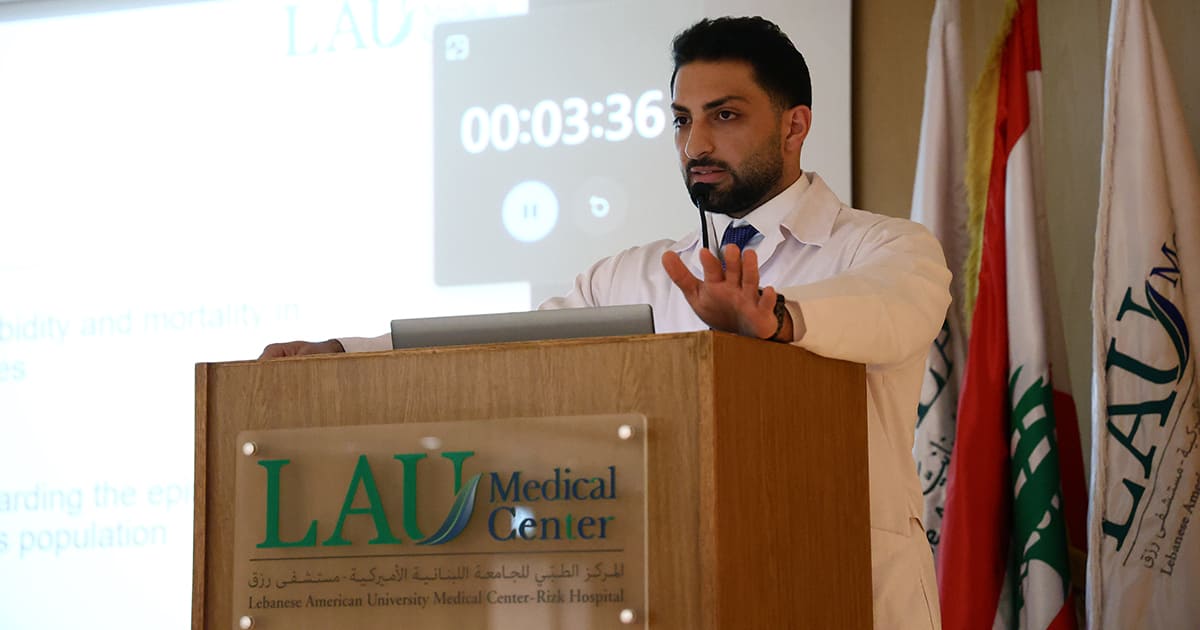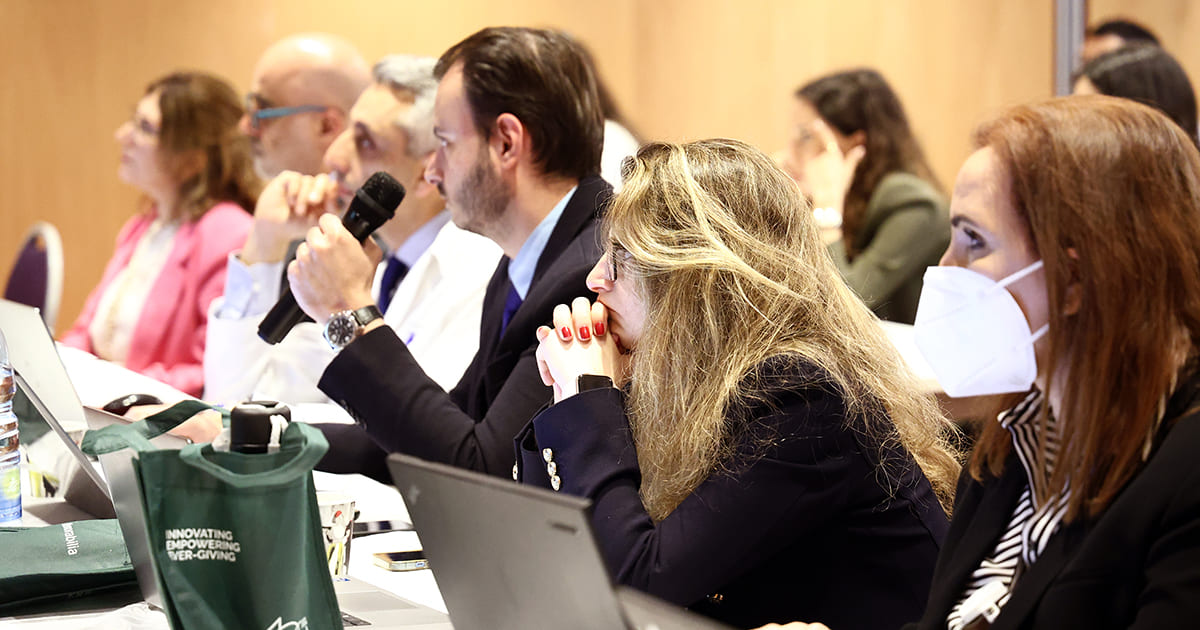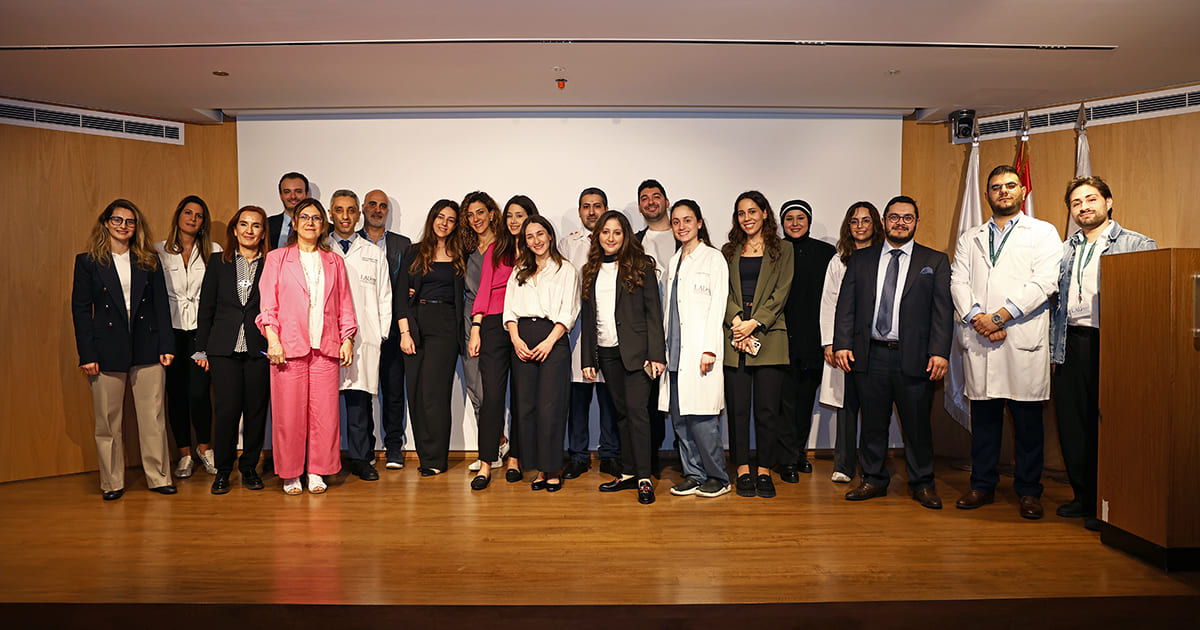Medical Graduates Showcase their Research Leadership
Residents and fellows from the LAU Gilbert and Rose-Marie Chagoury School of Medicine address critical healthcare needs through original, patient-centered research at the annual Graduate Medical Education Research Day.
For the fifth consecutive year, the Office of Graduate Medical Education at the LAU Gilbert and Rose-Marie Chagoury School of Medicine hosted the Annual Graduate Medical Education Research Day on April 9 at the LAU Medical Center–Rizk Hospital.
Twenty-two original research papers—including several published in peer-reviewed international journals—were presented before a multidisciplinary jury and faculty mentors, creating a dynamic platform for sharing knowledge and expertise while demonstrating the school’s steadfast commitment to research.
Graduates from various programs—anesthesiology, orthopedics, psychiatry, internal medicine, and infectious diseases—explored a range of community-centered and globally relevant health issues, applying thorough scientific methodologies such as cross-sectional studies, systematic reviews, and meta-analyses to match the diversity and complexity of their research topics.
“To uphold and advance the standard of research, we have only selected original projects this year that presented results or were in the process of doing so,” said LAU Clinical Associate Professor and Assistant Dean for Graduate Medical Education Rajaa Chatila, who also served as a jury member and mentor. She noted that this approach reflects the continuous improvement in both the caliber of the projects and the strength of the presenters over the years.
Dr. Hani Tamim, director of the Biostatistics Unit at the Clinical Research Institute of the American University of Beirut, was part of the multidisciplinary jury that evaluated and provided feedback on the research projects.
“Having external jurors like Dr. Tamim not only ensures impartial evaluations aligned with rigorous criteria but also reflects the collaborative spirit essential to producing research of the highest standard,” said Dr. Dany Gaspard, clinical assistant professor at the school of medicine and chair of the Research Day committee.
Post-graduate Year (PGY) III orthopedics resident Youssef Jamaleddine presented three research projects at the event, earning first prize for a study that was published earlier this year in the Brain and Spine journal.
His winning presentation examined how quickly surgeons can become skilled at two minimally invasive procedures for treating herniated discs in the lower back: the interlaminar approach, which accesses the disc through the space between two vertebrae, and the transforaminal approach, which reaches the disc through the opening where spinal nerves exit. He highlighted key differences in the learning curves and surgical efficiency of each method, offering insights into how these approaches are adopted and performed in clinical practice.
Second place went to Dr. Faten Al Ghadban, a PGY IV ophthalmology resident, for her research on the surgical implantation of artificial lenses using a stable four-point suture technique.
Third place was awarded to Dr. Hicham Baba, a PGY V psychiatry resident, for his study exploring the connection between irritable bowel syndrome (IBS), anxiety, and the gut microbiome.
Dr. Rana Attieh, a PGY III internal medicine resident, came in fourth place for her research on healthcare workers’ perceptions of the seasonal influenza vaccine in Lebanese hospitals following the COVID-19 pandemic and ongoing economic crisis.
“Research has always been the foundation of medicine and the key to advancement,” said juror, mentor, and Clinical Associate Professor at the school of medicine Ama Sadaka.
Comparing the influence of research over time reveals just how much more we depend on its results, she added, highlighting the critical need to filter through the background noise, as not all findings are valid.
Dr. Chatila concluded by emphasizing that conducting research helps young physicians develop a critical eye for the quality of published work, enabling them to filter what they read and truly learn from it.


